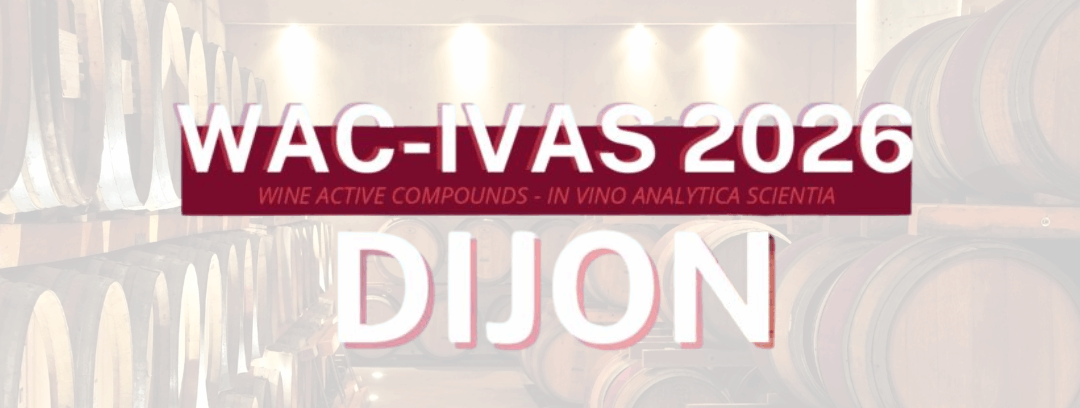IVES is proud to collaborate with the 6th edition of the Wine Active Compounds (WAC) conference and the 14th edition of the In Vino Analytica Scientia symposium (IVAS) held in Dijon (2026).


IVES is proud to collaborate with the 6th edition of the Wine Active Compounds (WAC) conference and the 14th edition of the In Vino Analytica Scientia symposium (IVAS) held in Dijon (2026).
Climate change is driving global temperatures up together with a reduction of rainfall, posing a risk to grape yields, wine quality, and threatening the historical viticulture areas of Europe.
One of the basic problems in the viticulture branch is the improvement of perspective technologies for both vine training systems: with vertical standing and with free position of shoots, adapted to the requirements of complex mechanization.
Managing pests in vineyards presents a major challenge for winegrowers, who are seeking effective solutions to control diseases and pests.
The UN Agenda 2030 for Sustainable Development, a global plan for a better future, requires actions.
The wine tourism industry has experienced significant transformation over the past years, accelerated by the COVID-19 pandemic.
The LIFE Climawin project drives the sustainable transformation of the wine sector in response to climate change through the implementation of an innovative management model applied at the demonstrative winery, Bosque de Matasnos.
Climate change is increasing the frequency and severity of environmental hazards (e.g., prolonged drought), and even non-extreme climate events (e.g., a period of slightly warmer temperatures) can lead to extreme impacts when they occur simultaneously with other (non-extreme) events.
The integration of digital social networks (DSN) has profoundly transformed communication practices within the wine industry, reorganizing the dynamics of prescription and marketing.
Most of the issues surrounding trade in wine and spirits focus on the fight against non-tariff measures.
The paper discusses potential implications of New Genomic Technologies (NGTs) on European Plant Variety and Wine Law.
This study examines the impact of wine tourism development on the sustainable competitive advantage of Spanish wineries, while also exploring the mediating roles of winery image and winery reputation in this relationship.
The study aims to propose collective strategic actions for family wineries, promoting their competitiveness and the valorization of territorial resources.
The objective of this study is to assess the potential for integrating sustainability guidelines into Geographical Indications of wine, especially in the case of the Denomination of Origin Campos de Cima da Serra (CCS), Brazil.
According to the Directive EU 2019/633, European Union settled a minimum harmonised framework of rules to ensure the prohibitions of unfair commercial practices in business to business relationship of agrifood sector.
We evaluate wine ratings by comparing data from two crowdsourcing platforms – Vivino, which aggregates the opinions of a large number of wine lovers, and Global Wine Medal Rating, which aggregates the scores from more than 1030 international wine competitions since 2020.
The evolution of Republic of Moldova’s wine industry offers a compelling case study in how legal harmonization and institutional reform can catalyze the transformation of a national wine sector.
In 2023–2024, the Republic of Moldova launched its first AI-powered wine pilot, integrating artificial intelligence into the vitivinicultural value chain.